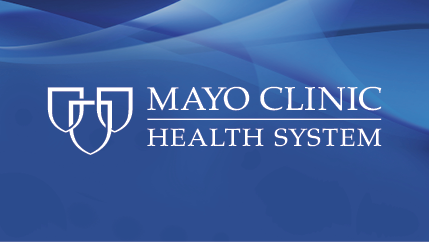Recent Posts
Speaking of Health
Prioritize your health: Breast cancer risk, treatment
Topics in this Post

Nearly 1 in 8 U.S. women are diagnosed with breast cancer in their lifetime. From lifestyle changes and preventive screening options to genetic counseling and personalized cancer treatment options, you can prioritize your breast health in many ways.
In a webinar, Caroline Clune (Wilker), M.D., and M. Kathleen Christian, M.D. ― both Mayo Clinic Health System Breast Care Center physicians ― discussed breast cancer, preventive measures, and advancements in personalized medicine and breast cancer treatment.
Watch the webinar:
Here are a few highlights from the webinar, which was followed by a Q&A session:
- Breast cancer survival rates have increased, largely due to early detection and prevention.
- It's likely that breast cancer is caused by a complex interaction of your genetic makeup and lifestyle.
- Risk factors you cannot change include increasing age, early onset of your menstrual period, late onset of menopause, late age of first childbirth, a history of chest wall radiation, family history, genetic mutations, a benign breast disease and an increased breast density on a mammogram.
- Risk factors you can change that can reduce the risk of breast cancer include obesity, a sedentary lifestyle, an unhealthy diet, alcohol use and smoking.
- Providers review these risk factors to assess your risk and discuss options for risk reduction and prevention, as well as screening for early detection. One plan does not fit all. Understanding and collating all the risk factors with models and calculators can individualize your path for breast cancer screening and prevention.
- Breast cancer treatment is becoming much more individualized. Health care providers look at the characteristics of individual cancer cells; how advanced the cancer is when it's diagnosed; and characteristics of the patient related to age, family history and other health issues to minimize the invasiveness of treatment and find the right balance of treatment.
- The presenters discuss technological advances related to the ability to target lymph nodes and reduce the long-term effects of scarring with lymph node removal; surgical techniques that include plastic surgeons to better preserve a normal breast appearance; new ways of evaluating chemotherapy to prevent overtreatment and side effects; improved screening related to gene mutations in addition to BRC1 and BRC2; advances in combination drug treatments; and treatment targeted to a growth hormone that allows a cancer to keep itself growing and getting bigger.
- Treatments being investigated include detection through blood proteins, treating small cancers with a freezing or heat-type therapy technology, imaging enhancements and enhancing that tumor genomic profiling to better identify specific behaviors of the cancer cells to better target treatment.
- The future of breast cancer treatment is bright.
Mayo Clinic Health System offers breast cancer care in many communities across the Midwest.
Topics in this Post




